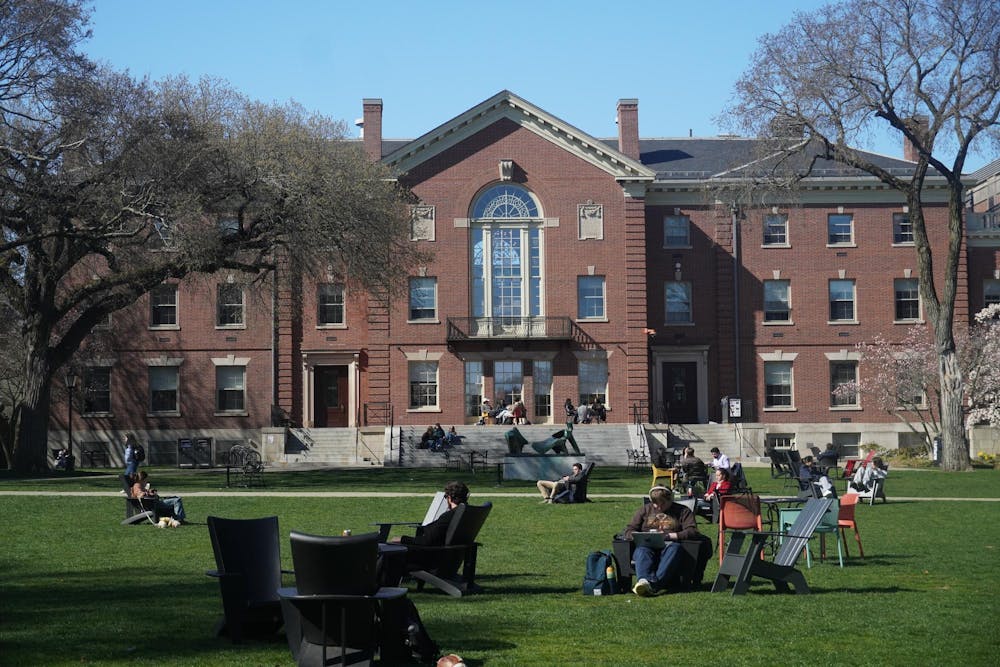In this fraught moment for higher education, student government is more important than ever. The upcoming Student Government Association elections — and particularly that of the Undergraduate Council of Students — are an opportunity for our student body to influence how we are represented both on campus and in the world.
The UCS describes itself as a bridge between students, faculty and staff. University activities and student life are now under a national microscope amid investigations, a planned funding freeze and legal pursuits, making student voices all the more consequential. And who speaks for us when it matters most? Our elected student leaders.
When our UCS president makes a statement, the public, the media and the University’s administration may take it as a reflection of the student body’s collective stance. What they don’t see is the fine print: Only a small fraction of the undergraduate population — 21% in the last election — typically cast ballots for the UCS, UFB and CCB elections. It’s also worth noting that our current UCS vice president ran unopposed. That’s a process built on apathy — and it weakens our ability to respond credibly and confidently to the issues that affect us all.
Being civically engaged doesn’t start and end with national elections. It starts here, in our community, with choosing leaders who reflect our values, priorities and needs. Whether it’s advocating for mental health resources, allocating student activities funding or taking a stance during political controversy, student representatives are only representative of the student body if we all do our part in electing them.
There are efforts being made to encourage engagement. The SGA Elections Committee collaborated with the Brown Political Union to host a Spring General Election Candidate Forum on Monday, where candidates were given the opportunity to deliver speeches and table with attendees. Brown Votes also hosted an SGA candidate canvassing event in collaboration with Ben and Jerry’s last week. However, this is not enough.
Low voter turnout and unopposed races run the risk of enabling a vocal minority to dominate our elected student leadership. By expanding outreach and increasing transparency about the capabilities and influence of the UCS, students who in the past were uninterested may feel more compelled to take part. This would further lend credibility to the UCS as it tries to pursue a campaign for “broad democratic reform at Brown.”
While we trust that the students running for these positions are committed to improving the quality of life at Brown, the student body must now demonstrate the same commitment by participating fully in our own democratic process. All of us should listen to each candidate, engage with their ideas and ultimately cast an informed vote.
This election isn’t just about who gets to hold a title. It’s about ensuring that when statements are issued — and when positions are taken on behalf of the student body — we can trust that those voices truly represent us. The UCS has legitimate power to make improvements for students and speak on our behalf. If you are dissatisfied with the UCS’s exercise of that power — or lack thereof — you must show up to vote.
Editorials are written by The Herald’s editorial page board, and its views are separate from those of The Herald’s newsroom and the 135th Editorial Board, which leads the paper. This editorial was written by the editorial page board’s members, Ben Aizenberg ’26, Ethan Canfield ’28, Evan Tao ’27, Meher Sandhu ’25.5, Paul Hudes ’27, Rchin Bari ’28 and Tas Rahman ’26.





